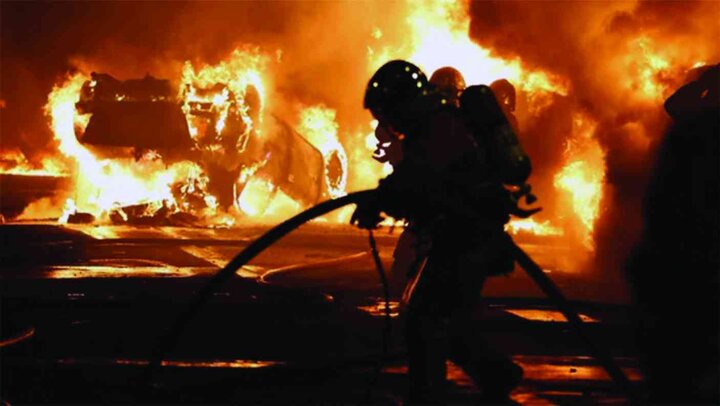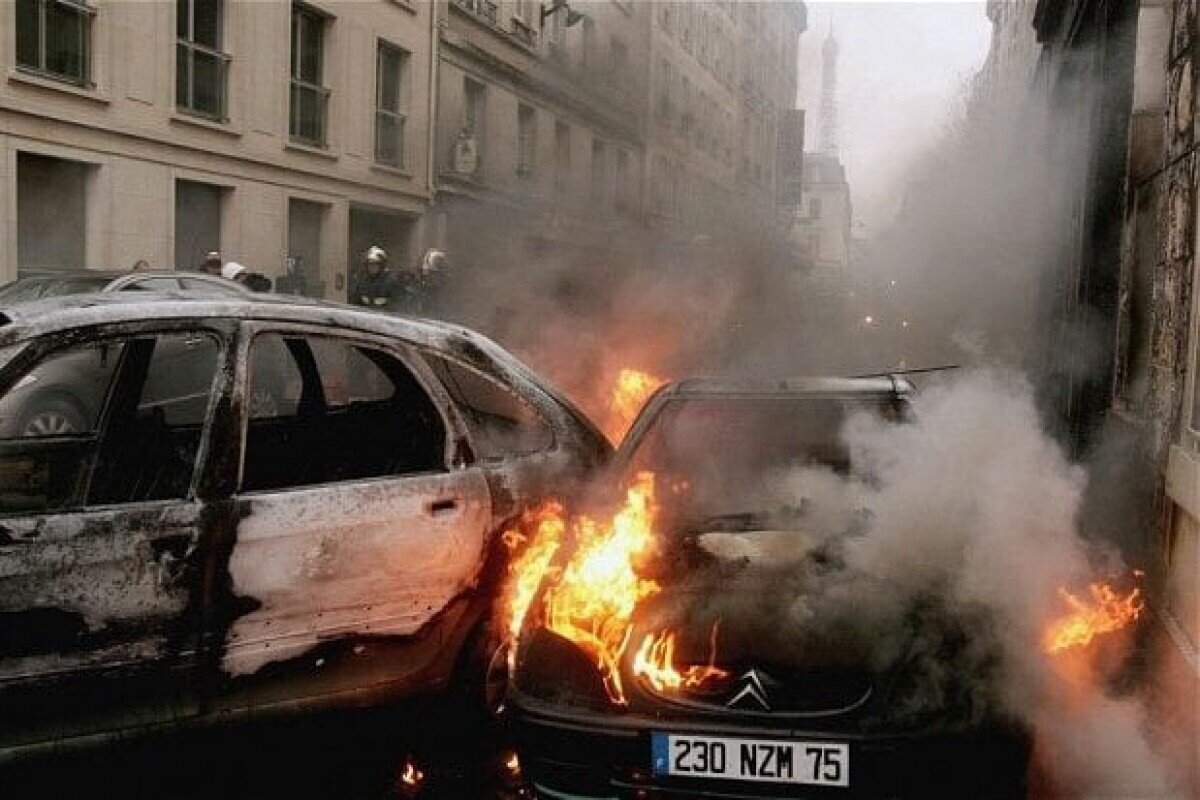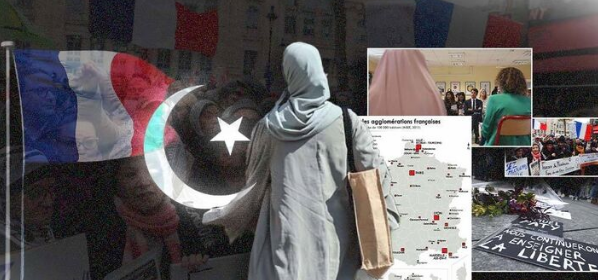burning hundreds of cars in the Christmas fire; What is going on in France?

Mehr News Agency, International Group, Hassan Shokohi Nasab: Not much time has passed since the historic fall of the French government. , the French Parliament on the evening of Wednesday, December 14, with an overwhelming majority against “Michel Barnier“, the right-wing prime minister, voted no confidence only three months after he was appointed by the president of this country, “Emmanuel Macron”.
After the removal of Barnier, “Francois right”>Bayrou” the center-right ally of Macron was appointed as the new prime minister of this country last Friday, but the violent internal developments of this country during the New Year holidays, tell the stability of the inflamed and crisis situation of France. did.
According to French media reports, about 100,000 police officers and security forces were stationed in Paris and other cities of this country to stop the riots. The greatest concentration of security and police forces was in Paris and its suburbs, where 10,000 officers were stationed. Nevertheless, despite the widespread deployment of police and security forces, hundreds of cars were set on fire in Paris and various French cities, and hundreds of people were arrested.
“Bruno Retalo” said the French Interior Minister that 984 cars were burnt. About 420 people were arrested, of which 310 are in police custody. He called these figures unacceptable and added: “This violence is the product of brutality created by cowards and thugs; People who attack the property of French people who do not have the means to protect their vehicles in private parking lots.”
These events not only highlight security concerns in the country, but are also a reflection of deeper social and economic problems in French society. Indeed, what are the reasons for the unrest and what are the roots of this continuous violence?
Examining the roots of continuous violent protests in France
1. Social and economic inequalities
Inequality in the distribution of wealth and opportunities is one of the most important factors of unrest in France. Marginal areas, which are often inhabited by low-income groups and immigrants, face high rates of unemployment, chronic poverty, and lack of educational and welfare facilities. These conditions fuel the general feeling of frustration and anger among the youth of these areas and become the basis for violent protests.
Looking statistically at the economic problems in France, we can conclude that this country, as one of the largest economies in Europe, with high public debt, rising energy prices and Interest rate growth struggles. The American financial services company “Moody’s Invester Service” previously related to the fall of the government and He had warned of the intensification of the political deadlock in France.
The German television network “Deutsche Welle” also recently, based on the available statistics, announced that the bankruptcy rate in France is increasing, so that 65 thousand companies are expected to declare bankruptcy this year, while this figure was 56 thousand last year.
Economists have also predicted more layoffs and weaker economic growth in France in the coming months. “Rama Yid” is a senior member of the Atlantic Council think tank and a high-ranking member of the European Center, with Drawing a grim picture of France’s financial situation, he said: “The public debt, which has increased by more than 50% in seven years, has reached 3.2 trillion euros from 2 trillion euros. In addition, France is struggling with a population of 9 million poor people, increasing factory closures and a foreign trade deficit of around 100 billion euros in 2023 alone, all of which are signs of the rapid deindustrialization of the French economy.
2. Racial and cultural discrimination and tensions
France with its diverse population has always faced racial and cultural challenges. Many immigrants and minorities feel marginalized by society and the government. Discrimination in employment, housing, and education, along with ineffective integration policies, have exacerbated these tensions.
As an example, Muslims in France in 2024 experienced many incidents and suffered many sufferings and injuries, so that in addition to discrimination and deprivation In jobs and universities, restrictions on the freedom of Muslims in France and attacks on their places of worship continue. Reports and studies published by official institutions in France emphasize that thousands of Muslims seek to emigrate from this country for more freedom.
Statistics show that in 2022, more than 40,000 migrants left the shores of France and crossed the Manche arrived in England, hundreds of them do not speak English. Although most of them have fled poverty or war, they risk their lives again to escape racism and discrimination in small rubber boats.
3. Distrust of government institutions and police
Distrust of the police and government institutions is another key factor in the unrest. Discriminatory treatment and numerous reports of police brutality against minorities, especially in marginalized areas, have increased the sense of injustice among the people. This mistrust is intensified when the government does not pay attention to the demands of the deprived classes.
4. The culture of protest and rebellion
Protest and rebellion in France have historical roots and have been used many times as a tool to express social dissatisfaction. For some young people, actions such as burning cars have become a symbol of protest against a military that has ignored them. These behaviors have sometimes become a recurring pattern and have turned the New Year’s night riots into a bitter tradition.
5. The role of media and social networks
Media and social networks play an important role in spreading and intensifying these unrest. The rapid dissemination of violent images and videos fosters feelings of anger and solidarity among protesters, and in some cases encourages others to participate in these riots. This space also allows extremist groups to organize and direct protests.
Conclusion
As mentioned, the unrest in France in issues such as social and economic inequalities, discrimination and racial and cultural tensions, mistrust of government institutions and the police, protest culture And the rebellion, as well as the influence of the media and social networks, is rooted.
Solving the aforementioned issues requires deep and long-term policies from the government; A government where Macron’s popularity as the president and the highest official of the country has dropped to about 20 percent in polls and calls for his resignation are increasing. The results of a new poll published by “Figaro” newspaper a few days ago showed that more than 60% of French people want Macron’s resignation and 72% do not believe in his promises.




